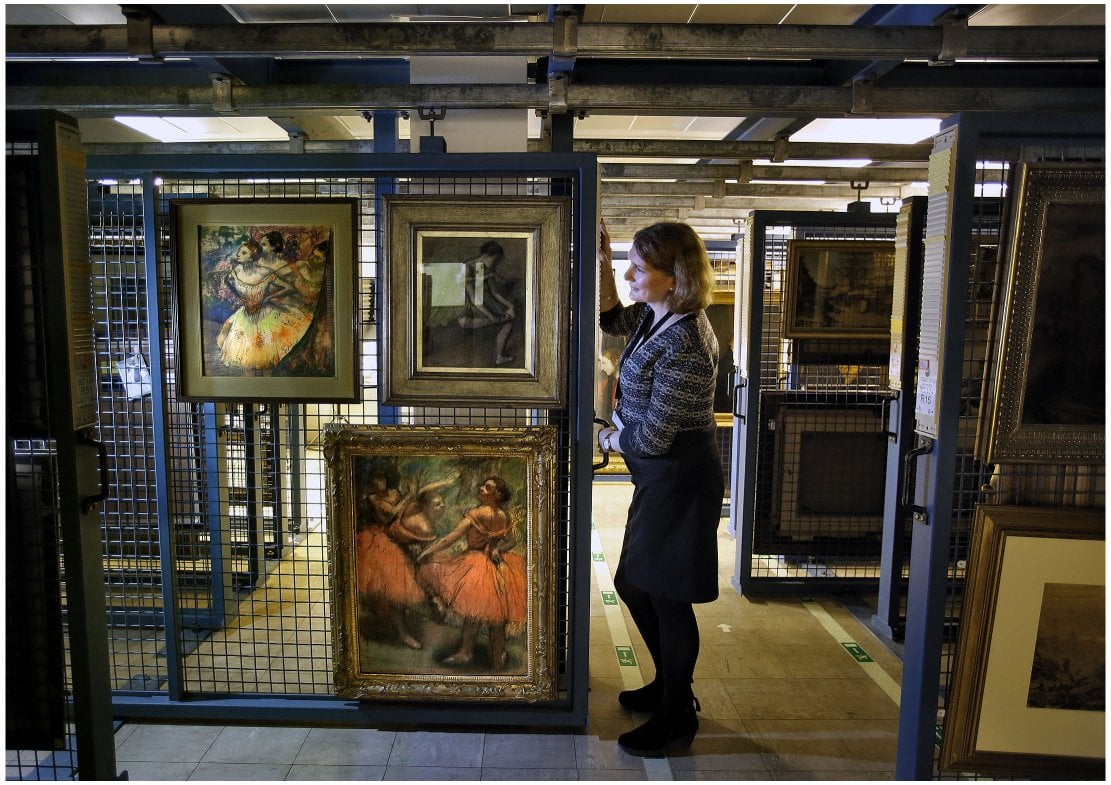
A strategy for sustainability
Scotland’s museums sector has taken an innovative approach to overcoming financial challenges, according to Joanne Orr.
Building resilience and planning for sustainability in the museum sector is at the heart of our work at Museums Galleries Scotland (MGS). We developed ‘Going Further: The National Strategy for Scotland’s Museums and Galleries’ with the sector. Published in 2012, the strategy states that sustainability is key for the future of the sector. We offer practical support to museums and galleries to work toward long-term sustainability, whether that is by diversifying income sources, increasing capacity through collaborative working or developing skills.
The museums sector in Scotland has been remarkable in its innovative approach to overcoming financial challenges. As the national development body for Scotland’s museums and galleries we can review this inspiring work and share knowledge with the wider cultural sector. Cross-sector knowledge transfer is very powerful as it allows us to collaboratively build skills in industries where budgets and capacity can be very limited. The Insights and Ideas Café we run in partnership with Creative Scotland offers an opportunity for cultural organisations to share experiences and work across sectors to discover innovative practices. There is considerable added value in organisations working together, sharing successes and failures and learning from each other.
Within the museums sector, there is a great amount of peer support on offer and we try to foster and facilitate an environment conducive to collective working. MGS supports the germination of ideas. Through our networks we can distribute the information and our investment strands are geared to do that. Museums can apply for money to support their ambitions in line with the aims of the national strategy.
This cross-sector knowledge transfer is very powerful as it allows us to collaboratively build skills in industries where budgets and capacity can be very limited
Our conference last September, 'Fortune Favours the Brave', focused on museum sustainability. The recurring themes that emerged from the day were that adaptability and innovation are key to the sector’s success, and that the creation of value through engagement with communities supports sustainability. A strong message delivered from all speakers was that in order to work towards sustainability we need to have clarity of vision − to get the right plans in place before moving forwards. We must not be afraid to start conversations that matter. Leaders need to listen to the opinions of others, whether they are your staff, your board or the local community. It is also essential to have an engaged and active board. These messages can be translated across all sectors.
We are committed to developing skills which will build capacity and help to achieve a sustainable future for the museum sector. Our National Skills Development Programme supports museums in making this shift in their practices through relevant courses. We have been working with Arts & Business Scotland and other bodies across the heritage sector to develop Resourcing Scotland’s Heritage, a three-year initiative to build fundraising skills through training, online resources and peer support networks. Scotland-wide training will offer learning at different levels. Courses will cover general fundraising basics and strategies as well as more focused sessions on raising private and corporate sponsorship, crowdfunding and board development. The programme of training, funded through Heritage Lottery Fund’s (HLF) Catalyst grants initiative, will develop entrepreneurial skills which will increase organisational resilience and reduce dependency on public funding.
Our investment streams have funded projects that see museums working to become environmentally sustainable. Recent capital fund awards have funded energy-efficient projects for new lighting for Grampian Transport Museum and a new insulated roof for a part of the Scottish Maritime Museum – projects that will allow these museums to cut their overheads.
Our approach to museums developing events for the Festival of Museums programme encourages them to ensure that their activities are sustainable, where possible through covering running costs in line with effective business planning and best practice. Museums can take advantage of this opportunity to develop a first-time relationship with a sponsor or consider and pilot other ways to ensure their events are financially viable.
MGS is exploring ways to embed sustainability in all areas of its work, both internally and externally. We explore ways to diversify funding and supplement the support we give to the sector from Scottish Government investment by creating and delivering programmes resourced in other ways – for example the HLF Skills for the Future fund has made the MGS Interns programme possible. We are taking account of Scottish Government strategies as well as museum-focused initiatives such as the Happy Museum Project in working towards a sustainable sector.
It is important to celebrate achievements in developing ways of being more sustainable. One way we do this is highlighting innovative and entrepreneurial projects through the annual Arts & Business Enterprising Museum Award, which we sponsor. Glasgow Women’s Library took the award in 2013 for its project ‘21 Revolutions: Two Decades of Changing Minds’ because it demonstrated an innovative way of engaging people with the collections while taking an enterprising and sustainable approach to income generation thorough using Kickstarter, an online crowdfunding platform for creative projects.
So, to echo the rallying call of ‘Fortune Favours the Brave’, together let us be brave, engaged, enterprising and collaborative colleagues and organisations. If arts organisations are to survive and thrive, we must ask the difficult questions, find the right solutions, and plan ahead for sustainability.
Joanne Orr is the CEO of Museums Galleries Scotland.
www.museumsgalleriesscotland.org.uk
Join the Discussion
You must be logged in to post a comment.